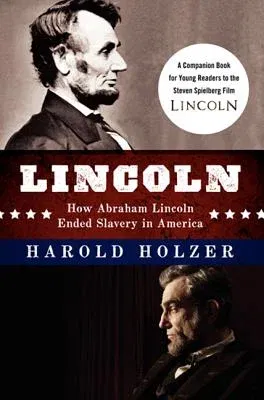A new book--and companion to the Steven Spielberg film--tracing how
Abraham Lincoln came to view slavery . . . and came to end it.
Steven Spielberg focused his movie Lincoln on the sixteenth president's
tumultuous final months in office, when he pursued a course of action to
end the Civil War, reunite the country, and abolish slavery. Invited by
the filmmakers to write a special Lincoln book as a companion to the
film, Harold Holzer, the distinguished historian and a consultant on the
movie, now gives us a fast-paced, exciting new book on Lincoln's life
and times, his evolving beliefs about slavery, and how he maneuvered to
end it.
The story starts on January 31, 1865--less than three months before
Lincoln's assassination--as the president anxiously awaits word on
whether Congress will finally vote to pass the Thirteenth Amendment to
the Constitution. Although the Emancipation Proclamation two years
earlier had authorized the army to liberate slaves in Confederate
territory, only a Constitutional amendment passed by Congress and
ratified by three-fourths of the states would end slavery legally
everywhere in the country.
Drawing from letters, speeches, memoirs, and documents by Lincoln and
others, Holzer goes on to cover Lincoln's boyhood, his moves from
Kentucky to Indiana to Illinois, his work as a lawyer and congressman,
his unsuccessful candidacies for the U.S. Senate and his victory in two
presidential elections, his arduous duties in the Civil War as commander
in chief, his actions as president, and his relationships with his
family, political rivals, and associates. Holzer provides a fresh view
of America in those turbulent times, as well as fascinating insights
into the challenges Lincoln faced as he weighed his personal beliefs
against his presidential duties in relation to the slavery issue.
The passage of the Thirteenth Amendment would become the crowning
achievement of Abraham Lincoln's life and the undisputed testament to
his political genius. By viewing his life through this prism, Holzer
makes an important passage in American history come alive for readers of
all ages.
The book also includes thirty historical photographs, a chronology, a
historical cast of characters, texts of selected Lincoln writings, a
bibliography, and notes.

